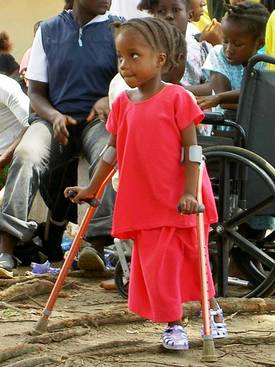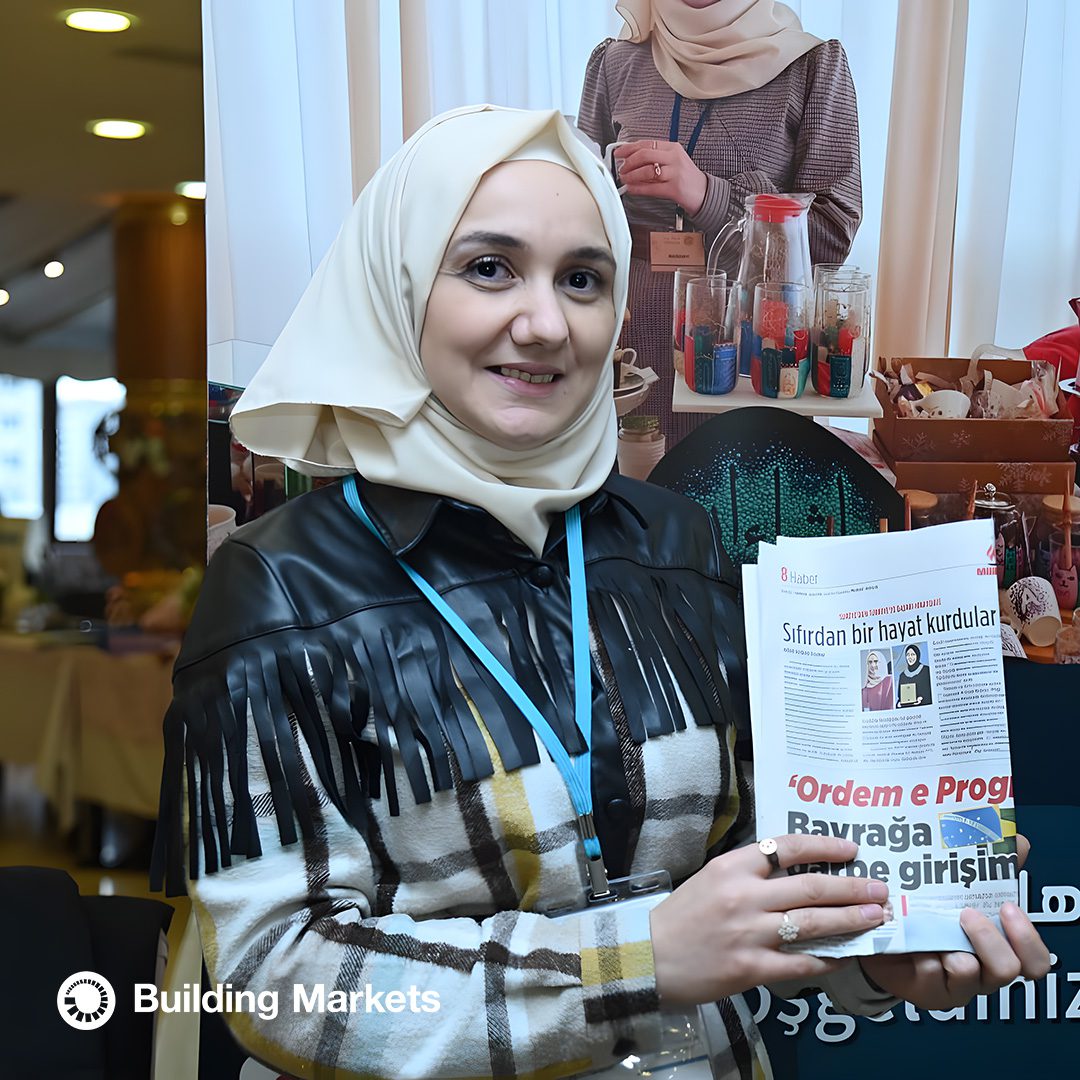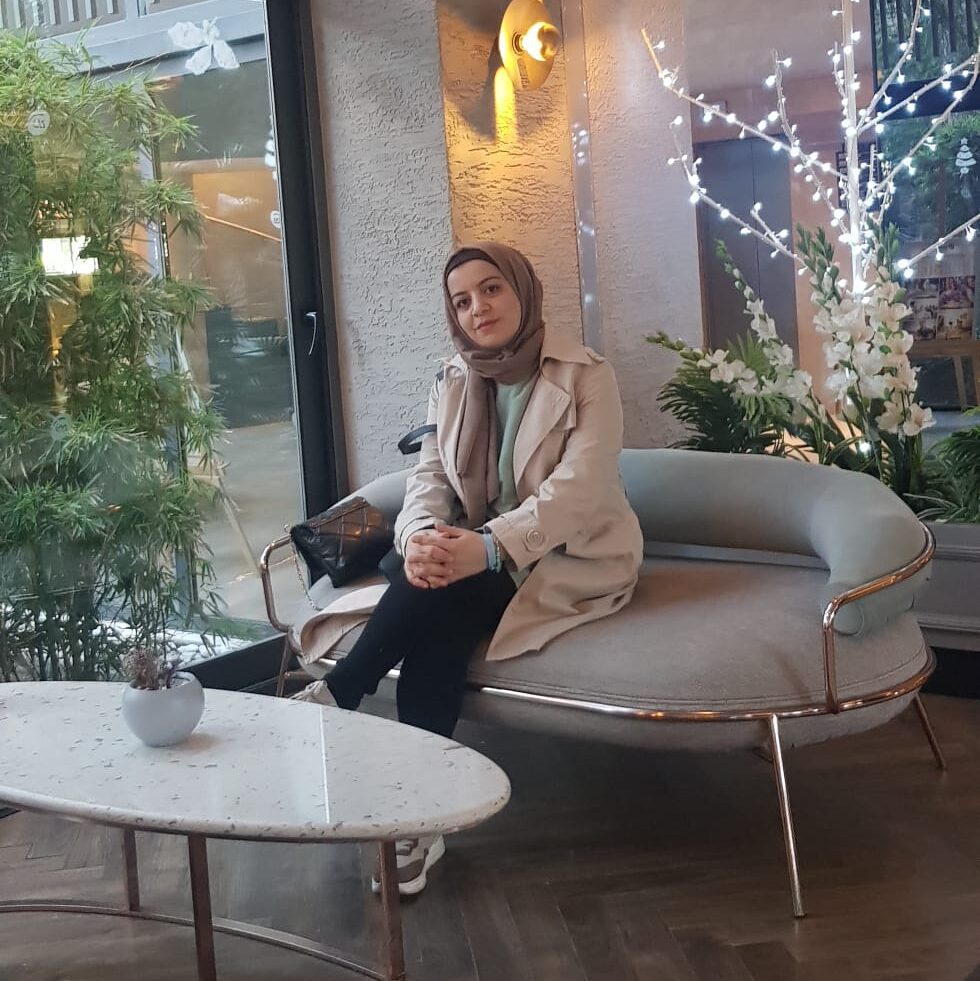Handicapped people in Liberia have it tough. Educational facilities do not cater to their needs, employment is difficult to find, sidewalks barely exist in the city and most businesses and government buildings do not even have a ramp. And forget about elevators – hardly any building has a functioning one. In addition, some disabilities, such as post-traumatic stress disorder or missing limbs, are stigmatized, as they are associated negatively with the war.
“Access is more than just entry,” says Aaron Marvolo, the Liberia Site Coordinator for Handicap International. It’s also about awareness and access to information, Marvolo said. By informing people and institutions of the challenges and reality of persons with disabilities, they will be better able to create a society with equal opportunities for all.
This is why the USAID Sustainable Marketplace Initiative Liberia (SMI-L) has partnered with Handicap International, on a project funded by the Australian Agency for International Development (AusAid), to co-host an awareness forum. Thirty members of government line ministries, private companies and universities will attend the Sensitization Forum on Access to Information for Persons with Disabilities. This will be held on April 2 through April 4 at the National Archive in Sinkor.
Ten topics will be presented, including SMI-L’s “Sensitivity to Persons with Disabilities in Liberia” training module, which is normally presented to local business owners during Building Markets’ general procurement training. This module was developed last year in partnership with Handicap International to address a lack of sensitivity on the part of business owners toward those with disabilities.
For example, many local business owners automatically assume that a blind man entering their store has no money and has come to beg. As a result, business owners are often immediately rude to the man without knowing whether or not he is able to purchase something. Teaching business owners to think about handicapped people differently will make them more tolerant of others. Because business owners are such a large group in Liberia, they could be instrumental in shifting the attitudes of other Liberians.
Training government officials to think differently is just as important, as they are the members of society that can drive change to create a more inclusive society. According to Handicap International, the Government of Liberia is making strides toward being more inclusive and promoting that inclusion throughout Liberia.
Recently, the Government created the National Commission on Disabilities, which works to promote equal rights for the handicapped. For example, they advocate that 4% of employees should be skilled persons with disabilities. The Commission is starting by encouraging each Government Ministry to employ at least one person with a disability. The Government is also working on offering a tax incentive to businesses that hire someone who is handicapped.
“The Government is making some effort,” said Marvolo, “but Handicap International [and others] has the responsibility to inform and advocate on behalf of the handicapped.”
An estimated 16% of Liberia’s population is physically or mentally disabled; for most nations this number is 10%. As Marvolu said, partners outside of the Government must be involved to spread awareness to all levels of society. With USAID’s support, the SMI-L, implemented by Building Markets, is proud to take part in such a one-of-a-kind event in Liberia.
photo copyright: Handicap International
Tags : Government of Liberia Handicap International National Archives National Commission on Disability training event
More from this author -
Latest News -

PDT – First Annual Plan of Action
Uncategorized



New assistance for local businesses available from Peace Dividend Trust
Uncategorized






![[Press Release] Building Markets Awarded Grant from the Nasdaq Foundation to Empower Women Entrepreneurs in Colombia](https://buildingmarkets.org/wp-content/uploads/2024/03/Nasdaq-Partnership-Announcement-2.jpg)